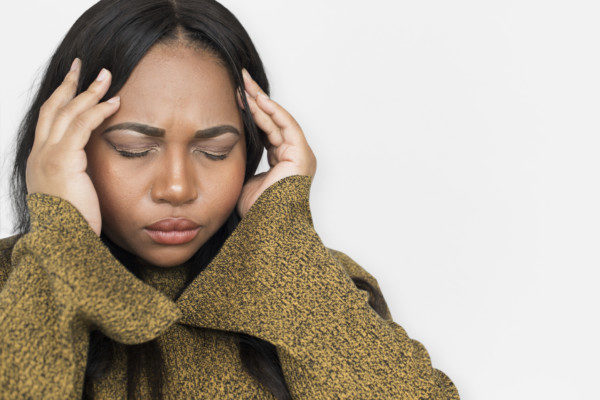Features
Abimbola Olumuyiwa: Getting Over Addictions
 Femoo. Whenever he walked into a room, he lit it up. Those around him felt energy and an enthusiastic spontaneity. Easily sociable. Battled with the use of cocaine. Was sober for eighty days. Tried it one more time. It was his last.
Femoo. Whenever he walked into a room, he lit it up. Those around him felt energy and an enthusiastic spontaneity. Easily sociable. Battled with the use of cocaine. Was sober for eighty days. Tried it one more time. It was his last.
Anne. Beautiful girl on the honour roll. Bright future. Had a weird encounter. She could no longer say ‘no’. Things changed. Life happened. Suffered a massive heart attack from the use of meth. Passed on at twenty-three. Light dimmed.
The above scenarios are real life cases of individuals who battled with addictions and were never able to right their wrongs (not their real names).
If you have never been faced with an addiction of some sort, chances are you know at least one person who currently is or has been. Addictions are that common. See some statistics here.
Let me start by clarifying a term called ‘positive addiction’ so we are clear. I have heard people say things like ‘Oh I am addicted to working out’ or ‘I am addicted to reading’, and I think ‘do you really want to use that word?’ While I understand the fact that ‘positive addiction’ sounds like a really cute oxymoron (there’s actually even a great book called positive addictions), I wonder why we would choose to call healthy behaviours that contribute to happiness, addictions. I am not sure what we intend to achieve by naming these activities addictions. Would I want to be labelled an addict just because I love to work out? Is there a reclamation work that needs to be done with the word ‘addiction’? There has got to be a better term for describing positive activity.
Simply put, addiction is the state of mind of having no control over a certain substance or activity – which typically has negative consequences. It is the state of being literally enslaved to that act or substance. Wikipedia defines addiction as a brain disorder characterized by compulsive engagement in rewarding stimuli despite adverse consequences. Wait did I hear brain disorder? Yes mate. The Merriam-webster dictionary defines it as a compulsive need for and use of a habit-forming substance characterized by tolerance and by well-defined physiological symptoms upon withdrawal.
Whichever definition you lean towards, the general idea is that addictions are negative and controlling. When it calls, you beckon. No matter how hard you try, you succumb. You really don’t have a choice. Well, until you decide that you do.
People slip into addictions for several reasons such as peer pressure or sadness and it is easy to feel the need to derive that temporary feeling of ecstasy when you are vulnerable. Hear, true happiness can never be found in the bosom of addiction.
Examples of addiction which easily come to mind are drugs, alcohol, smoking, pornography, or gambling. However there are some underrated addictions like unhealthy eating habits, shopaholism, and unhealthy use of electronic gadgets or social media. Funny huh? Also, the consequences of behavioural addictions are under-estimated when compared to that of their counterparts – the substance addictions.
If you are at a similar phase at the moment, ask yourself if you are ready to quit for real. You have read tons of articles on how to get it over with, tried different formulas but still you find yourself retrogressing. Let me confirm your fears here that no amount of write-ups, motivational lectures or therapy can make you stop. Not even this one – all of these can only encourage you, and give you support at best.
Ultimately, the only factor that can put an end to that addiction is YOU. You likely learned that addiction by choice and by choice is the same manner with which you will bring it to a halt.
Indicators that you need to end to that unhealthy behaviour
You know you should
The funny thing about an addiction is that the act judges itself. It is one of those few things that no one needs to tell you to stop. No mincing words, you know you are headed nowhere with it.
You realize that this act or substance is now your ‘master’
You can no longer say ‘No’ to that negative craving. The addiction is no longer at the stage of just being a bad behaviour or bad substance. It now feels like a war-fare of some sort.
It has affected your relationships
You can no longer communicate properly with those around you. You no longer really care for the human relationships in your life. You don’t try to make up with the people who matter to you when issues arise. You’re not even so sure you need them after all.
You get even more depressed after ‘shine-time’ is over
Along the pendulum of addiction’s dark consequences, further depression is found. It’s not worth it.
You have (or can have) health issues as a result
Asides from the preceding point (which I would also regard as a health issue), health threatening issues that could result from addictions are psychosis, memory loss, and organ damage. Other consequences of addictions are confusion, anxiety, and destructive sexual behaviours. If you find yourself in any of these categories as a result of a bad habit, it is time to stop. If you have not gotten to this part yet, please do not attempt to get here. If you ever needed confirmation to quit that addiction, here it is. Do not wait till you can convince yourself.
Tips on ending addictions
Stop testing yourself
Hey, we know you are strong. We know you can sniff a little of that powdery substance just for the fun of it, and you would not be addicted. Because you are strong. We know that despite the fact that you were/are an alcoholic, you can still accompany your buddy to the bar and nothing will happen. You have stamina. We know. But we would rather not test you. And you should not as well.
Discard ALL traces of your addiction
You do not need anything that can remind you of that wanton past and make you fall again. All you need is to be true to yourself. That trace could even be a person – a fellow addict who is your pally. Discard. If you have to contact your internet service provider to block certain websites off your browsing devices, do so. Do not leave any loose ends.
Surround yourself with helpful people and things
Truth is you cannot separate your mind from habits be it good or bad. That is where it all starts and ends – in the mind. The human mind is a little feeble and as such you should feed it with only what you want it to thrive on. Allow only positive influences into your life. By all means, find or develop healthy hobbies that can and will take your time. Yes, you will have to get busy doing new things. Develop interest in a new sport, join a positive club, do some community work, whatever. Go to places where you will meet people who do these positive things. And make friends of them.
Be accountable
Bad habits are not exactly things to be proud of, neither are they things you want to let anyone in on. But that is exactly why you need to find someone you will be accountable to. It will do you a whole lot of good to have someone you will be accountable to. Note: ‘This person’ should not be someone who is struggling with addictions as well. ‘This person’ could be a mentor, therapist, or spiritual advisor. ‘This person’ should be someone you respect and know is in a good position to hold you accountable. You and ‘this person’ should agree the frequency of checking in with you.
The journey to your liberty starts and ends with you. Remember that Rome was not built in a day so even if you have tried all of these before and still relapsed, it is okay. No matter how many times you fall, stay persistent. That is the key.
Do not let this kind of ‘life’ happen to you. It is very possible to quit an addiction, absolutely and completely.
Photo Credit: Dreamstime



















